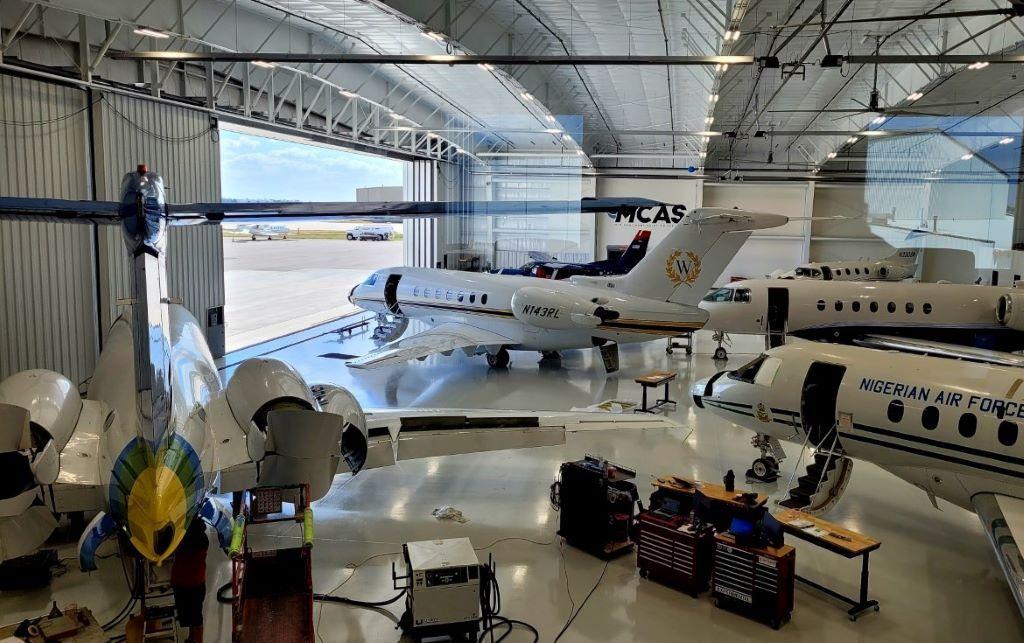
Credit: Molly McMillin
WICHITA—Mid-Continent Aviation Services (MCAS) has expanded its maintenance, repair and overhaul facilities with the completion of a fourth hangar. The FAA-approved Part 145 repair station, located at Wichita’s Eisenhower National Airport, supports business jet, turboprop, piston and rotorcraft...
Subscription Required
This content requires a subscription to one of the Aviation Week Intelligence Network (AWIN) bundles.
Schedule a demo today to find out how you can access this content and similar content related to your area of the global aviation industry.
Already an AWIN subscriber? Login
Did you know? Aviation Week has won top honors multiple times in the Jesse H. Neal National Business Journalism Awards, the business-to-business media equivalent of the Pulitzer Prizes.

